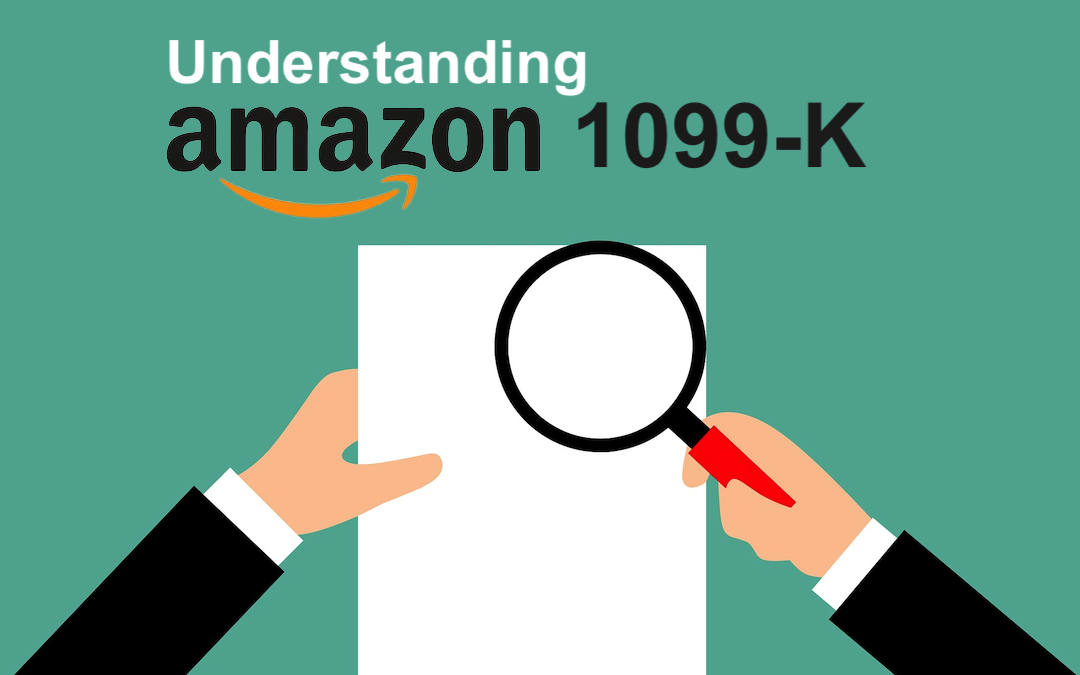
Amazon, the e-commerce giant, utilizes the 1099-K form to report payments made to sellers through its platform. This article explores the intricacies of the Amazon 1099-K, shedding light on its purpose, how it works, and its implications for sellers.
Introduction to Amazon 1099-K
The Amazon 1099-K is a tax form provided to sellers who meet certain criteria regarding sales volume and transaction count on the platform. It serves as a record of the seller's gross payment volume processed through Amazon.
What is Amazon 1099?
The Amazon 1099 form is a tax document that reports the seller's gross payment volume and the number of transactions processed through Amazon's platform during a specific tax year. It is issued to sellers who exceed certain thresholds set by the Internal Revenue Service (IRS).
Thresholds and Reporting Criteria
Sellers are issued a 1099-K if they meet the IRS's criteria, which include processing more than 200 transactions and generating over $20,000 in gross payment volume in a calendar year. These thresholds may vary based on state regulations.
How Amazon 1099-K Works
At the end of each calendar year, Amazon generates and distributes 1099-K forms to eligible sellers. The form provides a summary of the seller's sales activity on the platform, including gross sales, refunds, and other adjustments.
Understanding Amazon FBM Fees
Fulfillment by Merchant (FBM) is a selling option on Amazon where sellers fulfill orders directly from their own inventory. Amazon FBM fees include various costs such as referral fees, fulfillment fees, and shipping costs, which impact a seller's gross payment volume reported on the 1099-K.
Importance of Amazon 1099-K
The Amazon 1099-K is essential for sellers to accurately report their income and comply with tax obligations. Failure to report income accurately can lead to penalties and audits by tax authorities.
Navigating Tax Reporting
Sellers should carefully review their 1099-K forms to ensure accuracy and reconcile them with their own records. They may need to consult with tax professionals to understand their tax liabilities and deductions properly.
Tips for Amazon Sellers
- Keep detailed records of sales, expenses, and other financial transactions throughout the year.
- Monitor FBM fees and other expenses associated with selling on Amazon to accurately assess profitability.
- Consider leveraging accounting software or hiring a professional accountant to streamline tax reporting processes.
Key benefits Amazon 1099-K
- Clarity on Gross Payment Volume: The 1099-K provides a clear summary of the seller's gross payment volume processed through Amazon, including sales, refunds, and other adjustments. This helps sellers accurately track their revenue and understand their financial performance on the platform.
- Simplified Tax Reporting: By consolidating sales data into a single document, the 1099-K simplifies the tax reporting process for sellers. It provides essential information needed to complete tax returns, reducing the administrative burden associated with tax compliance.
- Compliance with IRS Regulations: Amazon issues 1099-K forms to sellers who meet certain thresholds set by the IRS. By receiving and accurately reporting the information provided on the form, sellers ensure compliance with IRS regulations regarding income reporting and tax obligations.
- Transparency and Accountability: The 1099-K promotes transparency and accountability in financial transactions between sellers and tax authorities. It serves as an official record of the seller's sales activity on Amazon, providing a reliable source of information for tax audits and inquiries.
- Financial Planning and Analysis: Sellers can use the information provided on the 1099-K for financial planning and analysis purposes. It helps them assess their business performance, identify trends, and make informed decisions to optimize their operations and maximize profitability.
- Proof of Income: The 1099-K serves as proof of income for sellers, especially those who rely on their Amazon sales as a primary source of revenue. This document can be useful when applying for loans, mortgages, or other financial services that require proof of income.
- Streamlined Record-Keeping: By receiving a consolidated summary of their sales activity, sellers can streamline their record-keeping processes. They have a clear record of their transactions, making it easier to reconcile their Amazon sales with their own accounting records.
Conclusion
The Amazon 1099-K is a crucial document for sellers on the platform, providing a summary of their sales activity and facilitating tax reporting. By understanding its purpose and implications, sellers can navigate tax obligations more effectively and ensure compliance with regulatory requirements.Share this post
Leave a comment
All comments are moderated. Spammy and bot submitted comments are deleted. Please submit the comments that are helpful to others, and we'll approve your comments. A comment that includes outbound link will only be approved if the content is relevant to the topic, and has some value to our readers.

Comments (0)
No comment